Attending a genealogy institute has ranked high on my “to-do list” since I decided to invest more in my family history passion. I thought it would be several years until I could attend one of these week-long educational opportunities, as I’d need to travel to Salt Lake City, Atlanta, or Pittsburgh for a course that matched my research interests. But when the Texas State Genealogical Society announced TIGR 2019 would have an Advanced Southern Research Techniques track — well, I was all-in!
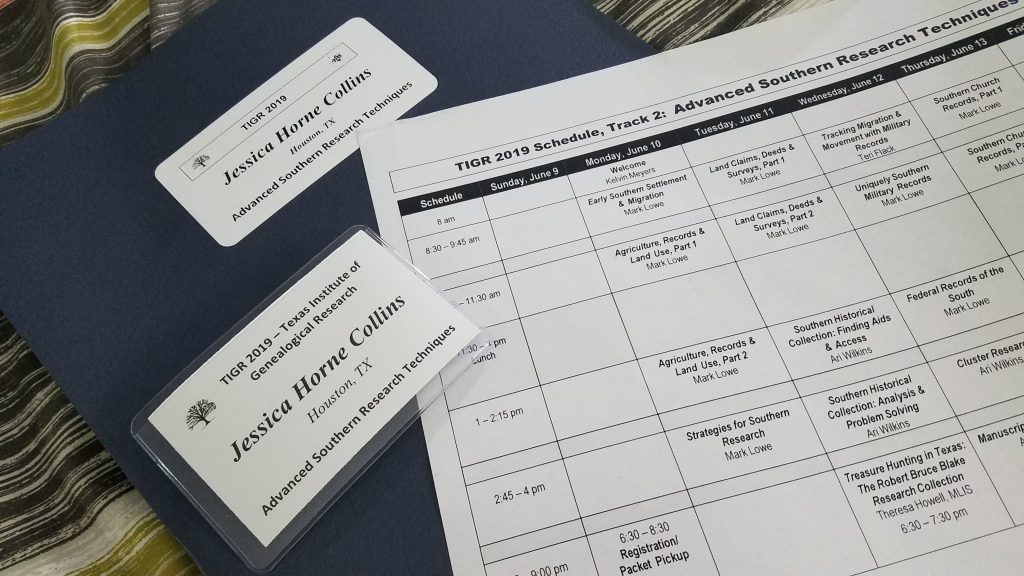
I spent last week (June 10 – 14, 2019) in Austin honing my genealogical skills. Our primary instructor was J. Mark Lowe who coordinates the Southern track at the Institute of Genealogy and Historical Research (IGHR) in Atlanta. We also had sessions led by Ari Wilkins, Kelvin Meyers, and Teri Flack. All were outstanding, and I learned so much!
Some of the topics included:
- Using topographic and historical maps to predict where ancestors may have lived previously. Our ancestors — especially those involved in agriculture — often moved to land with similar soil and land-use types.
- Using manuscript collections to further research, including how to get more out of these collections’ finding aids. (I’m anxious to try some of these tips on a collection that interests me at the Western Reserve Historical Society.)
- Using agricultural censuses to determine what kind of crops our ancestors raised and how successful they were — or weren’t. (Examining the agriculture census of my Hendry family led me to realize they were dairy farmers, a detail I hadn’t picked up from other records.)
- Finding church records for various denominations common in the South. (I actually sat in this session and learned Boeuf River Baptist Church’s microfilmed minutes from 1911 – 1991 are in a Southern Baptist collection in Nashville — something I never knew about my home church.)
- How to use historical law digests to understand legal changes and how these could have affected our ancestors’ actions. (Before law schools, being an attorney was learned by apprenticeship — so as long as I read the right books, I can know as much 19th century law as my ancestors and their legal counsel. Right…?)
And much, much more. I’m still pouring over my notes and other info from the week.
On Friday we took a field trip to the Texas State Library and Archives, which included a brief tour and some research time. The library had three books I hadn’t found anywhere else in Texas — a 1985 supplement to the Horn History Book, a book about my North Carolina and Mississippi Furrs, and a published article about Waul’s Texas Legion’s Civil War activity through the end of the Battle of Vicksburg. Most importantly, I familiarized myself with how state archives function, which means I’ll be more confident when I visit the Louisiana and Mississippi state archives for records pertinent to my research.
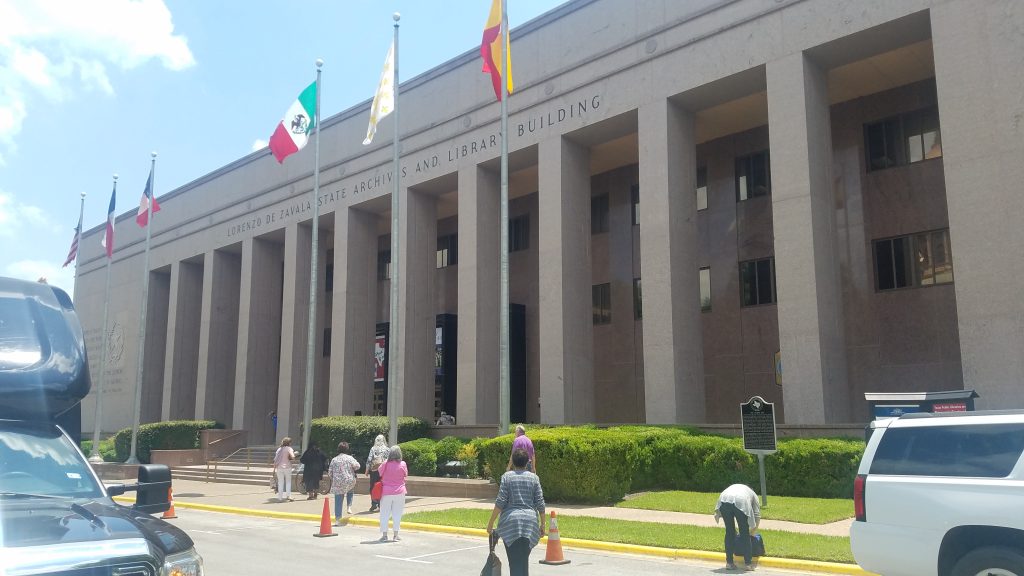
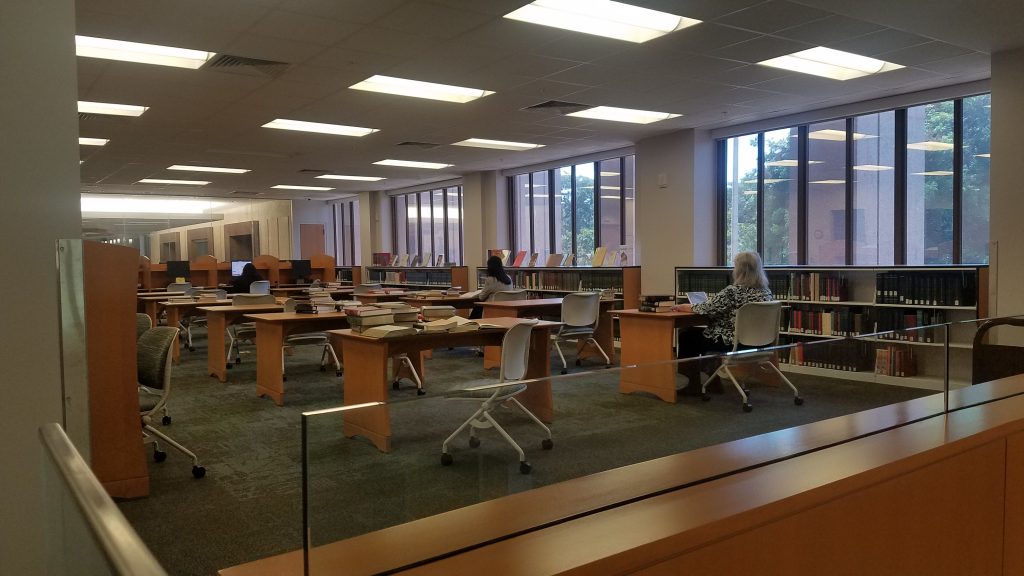
I also made so many friends and met people who enjoy talking about genealogy 24×7! A couple were even DAR members who I’ll undoubtedly cross paths with again in that organization. When we weren’t learning, we were talking about genealogy or eating — oh, lots of good Austin eating.
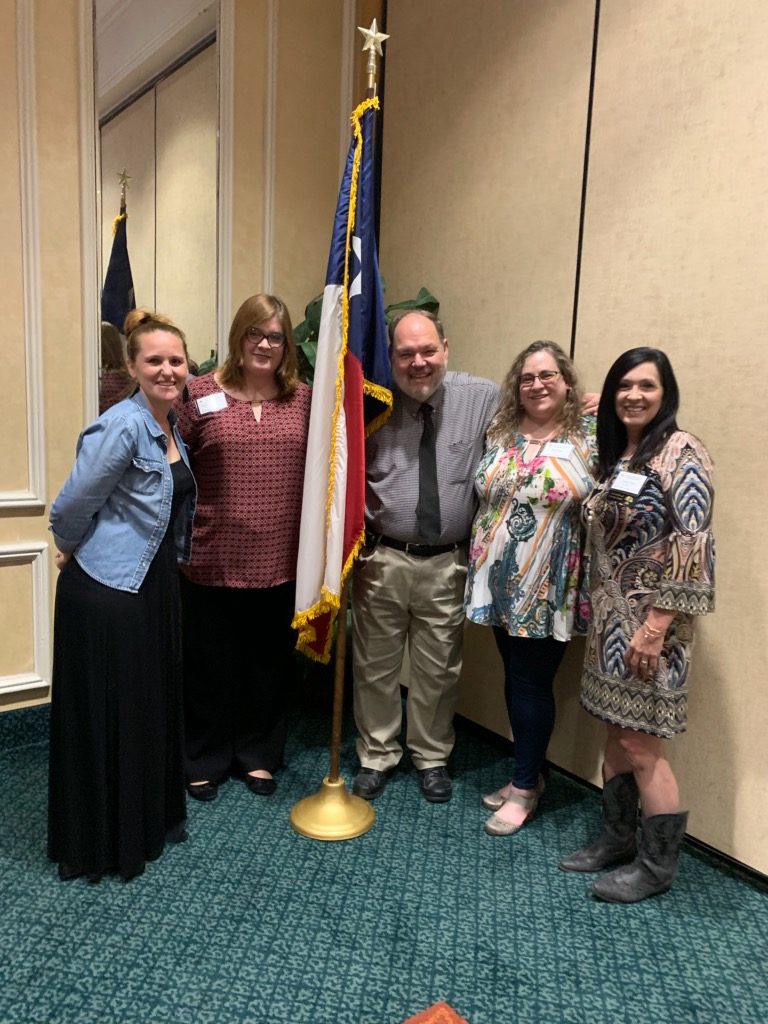
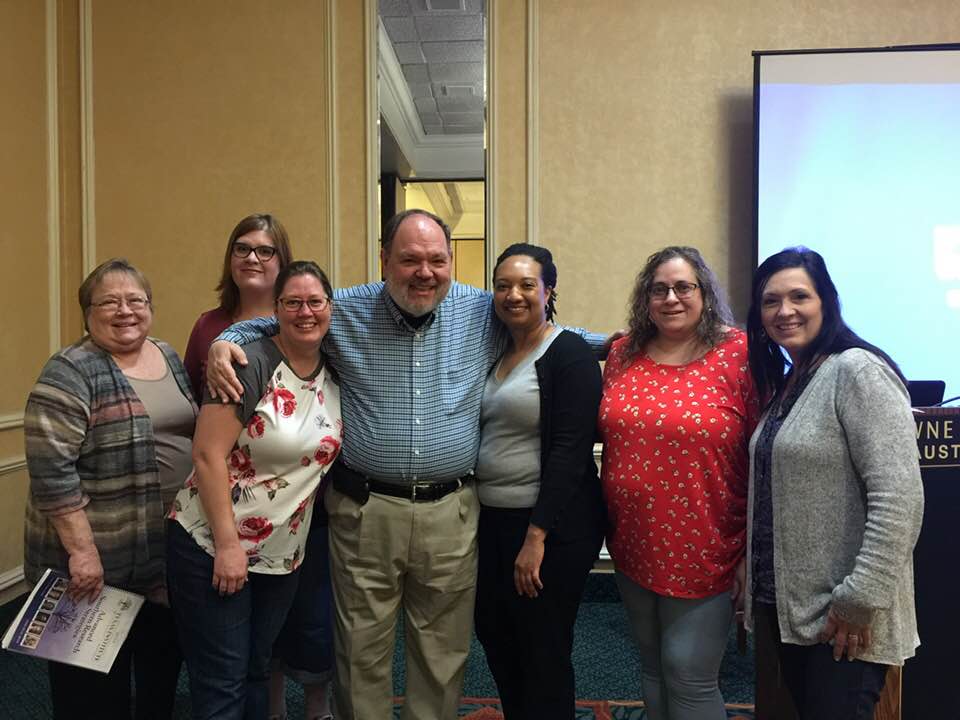
TIGR is held biennially, so the next institute is in 2021. The organizers are planning four research tracks for the next institute, adding African American and DNA tracks. I just may have to return in two years for more.
Thank you, faculty, TXSGS, and TIGR planners for a rewarding 2019 institute!

